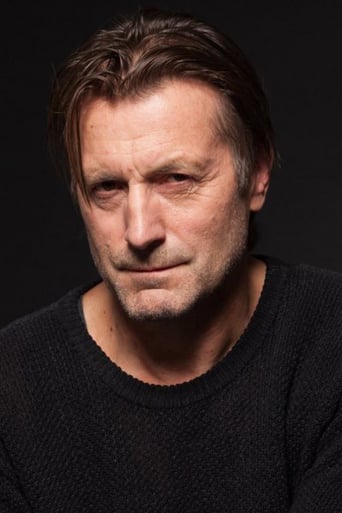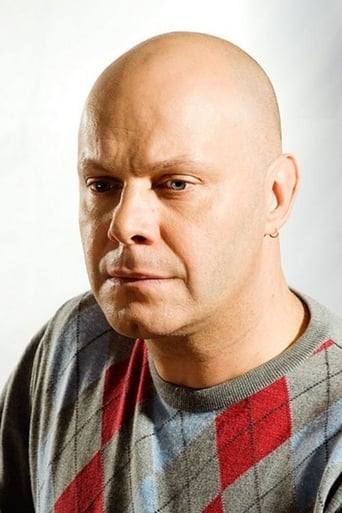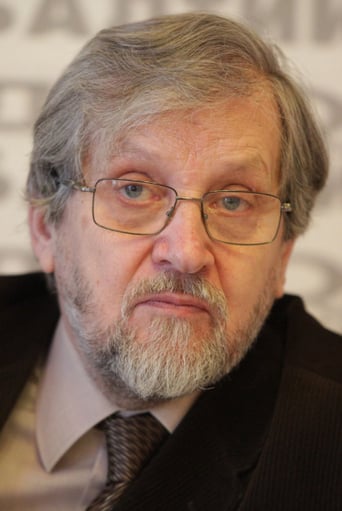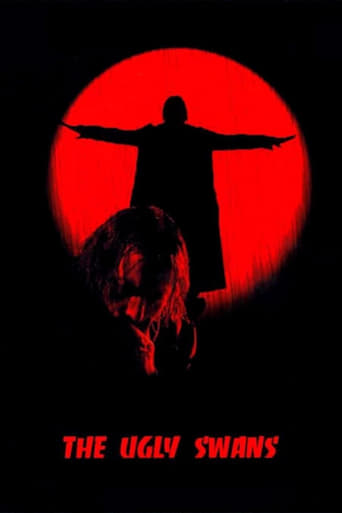
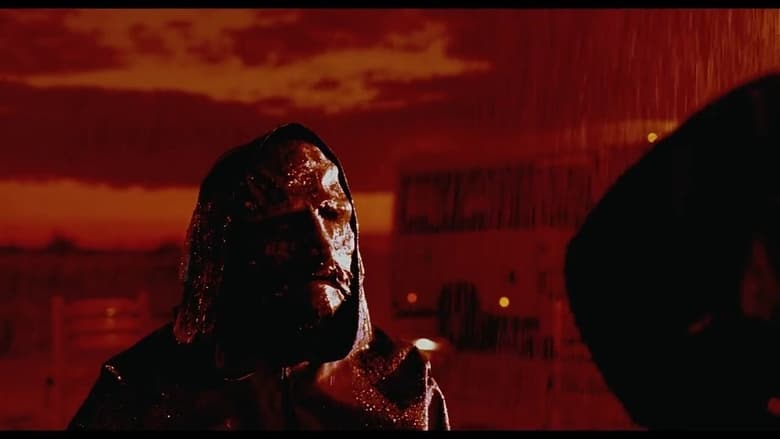
The Ugly Swans (2006)
In the near future, writer Victor Banev gets himself on a UN commission to investigate what's going on in the remote town of Tashlinsk, where reports tell of a virus-created race of brainiac mutants. Banev's tween daughter Ira is enrolled at a school for gifted children which has been taken over by the mutants, who have grown to despise ordinary humanity.
Watch Trailer
Cast


Reviews
Wow! Such a good movie.
Waste of time
Fresh and Exciting
This story has more twists and turns than a second-rate soap opera.
A clash between the old and the new world. Can children be educated in a better way when removed from their parents, and taught to be more logical, cleverer, more reasonable, not to repeat mistakes that go back thousands of years? Can perfection be attained given the right conditions?Fairly loose but good adaptation of "Ugly Swans", a novel by the Strugatsky brothers. No surprise if you are reminded of Tarkovsky's Stalker, because Stalker is also based on a story by the same Strugatsky brothers (Picnic by the Roadside). What follows is a fairly detailed description of the film. Though I am not telling how the film ends, you may not want to read all of this. Victor Banev, a fashionable writer, is part of a small UN mission going to Tashlinsk, a closed, quarantined city controlled by the military where mokretsy ("the wet ones", usually translated into English either as "Aquatters" or "Slimies") live together with normal humans, and have a say on who is allowed into the city. An important reason for his going there is see his teenage daughter Irma, who is being educated by the Mokretsy in an isolated boarding school for gifted children, with little or no contact with their parents. Children are there out of their choice, simply because what the mokretsy offer them is more interesting than what their parents and tradition has to offer. And this is mostly education, new values, breaking with bad old habits and with half-wasted lives. The Mokretsy are surrounded by mystery, unpleasant to look at. They are some sort of mutants, or people with some degenerative or genetic disease. But they have some supernatural powers and are more intelligent than normal people.Although they have lived together for many years, some humans feel threatened by the mokretsy, who have done nothing blatantly wrong. In fact, some humans believe that mokretsy are humans that have contracted a disease, like lepers. Because of this fear, most humans want to wipe the mokretsy out, even if human children under their custody have to go as well. Action to destroy the mokretsy develops quickly after the arrival of Victor Banev in the forbidden city. One of the key scenes in the film (as in the novel) is when Victor Banev is invited to the boarding school, where his daughter is being educated by the mokretsy. Banev is accustomed to speaking in public, but the gifted children do not make it easy for him. They are not interested in what he wants to tell them (mostly about his literary work, which they dismiss), but ask simple yet difficult to answer philosophical questions, about the future, how to deal with people who do wrong things, etc. Banev regains some ground and accuses them of wanting to dismiss and leave behind the old world, and of being cruel, like previous generations. So, he tells the children something like "You are very bright, but if you are going to be cruel, like in the past, who needs you?" In this way, Banev is an anti-hero (more so in the novel than in the film) and the story may be regarded as an anti-utopia. Another key moment in the film is Irma's recorded message to her father, about the way children see their elders' world. Banev hesitates whether to support normal people who want to do away with the mokretsy, or to support the mutants. He soon has to make a choice because the city is being evacuated and the mokretsy are going to be exterminated by chemical attack using military planes.In my opinion, Lopushanky manages to convey the book's atmosphere quite well. And this is a particular, fairly oppressive atmosphere: it rains from beginning to end, because the mokretsy control the weather, change the light (a permanent red light) and so on. Ending the film on a much more pessimistic note than the novel is the director's own right (perhaps more in keeping with the times?). A thoroughly recommendable film.
This beautiful, small budget film plays like a tribute to Tarkovsky's films(shakuhachi music and dripping water), but it is more conversational and quite direct in its message, which isn't simplistic, for all that directness. That message rings true these days as much as it did when the novel was written. Has the world become dangerously, insidiously pedestrian and banal? Have we squandered our potential utterly? The spirit of the film, the whole tone of it, is alienating - we cease to trust ourselves a little bit while watching it. It is a fairly short film too, it doesn't tax the viewer in that way, although it will challenge viewers. The Strugatsky brothers are my favorite Russian authors, and this film does, above all else, capture the spirit of their book, as well as can be expected. I sure would like to find it on DVD.
Long ago in Soviet Union lived two brothers -- Arkady and Boris Strugatsky. They had a dream -- to live in Communism -- and as they were writers, they devised the World of Noon, the future society of people appreciating creative work the most, socially responsible and enjoying living. It occurred, it wasn't a dream about Communism, that's why the writers soon became anti-Soviet, and the dream started living its separate life, changing, infecting new generations of engineers and scientists, strangely surviving under any system..."Ugly Swans" are not about World of Noon, but those who are able to appreciate it. So... The future intrudes into our world. Perhaps not a very happy one, because agents of it -- Aquatters -- are targeted by unknown genetic disease. Aquatters came to a provincial Russian town, set the rules they like and started to educate children. For children are our future, and changing them you make the world different. They teach rather strange things: what is hyperspace, and how to change weather, and other things, perhaps pretty important in the world of Aquatters. But top of all, they teach children to _think_.What's the problem, you would ask? A little one. In children's dreams there's no place for us. Our world is bankrupt, our values are corrupt, our moral is false. They are ruthless... but they only want to live in _their_ world. They go ahead, not looking on us and not caring. It's not surprising that our civilization considers them a menace. We also can be ruthless, and too often we are ruthless without necessity... Writer Viktor Banev who happens to visit the town faces uneasy moral choices. Taking sides. Remaining humane when bad things happen... not little for a single person? The movie is said to be based on the 1967 novel, but paradoxically, ideas spoken out in that moth-eaten year grew only more topical today. And the world too often can't propose growing youths nothing but dull job, race for money and dumb TV shows for entertainment. Who is more miserable, children grown by Aquatters, who can't, don't want to live in our world, or we who don't feel their longing for knowledge and agree with the role of well-trained monkeys? Humanism is also a new facet unveiled in the movie. Old... and new. Whatever the theories, there are living people beyond it... Writer Banev from the 1967 novel acts because he feels contempt for the old world; writer Banev in the movie acts because he feels pain of others... he cares about people, not about worlds, and that, I hope shows that the old world is yet alive.The last but not least, the movie isn't specifically Russian, more a tale of our civilization. And in, e.g. the United States it would be the same topical, I guess.
Unfortenetly i didn't read the book(by Strugatsky brothers)but i seem to get the idea- the humanity is in a very critical point of time and as always there are 2 options... I must admit i'm not a big fan of this idea (it seems that every one think that only our generation lives in a very unique time and all the others are not so interesting)but the wonderful filming-the superb camera work just makes you to feel the darkness, wetness and the agony the people in the film are in.So in my point of view if you looking for grate camera work like in "Mother &Son", "Stalker" and so on you're in the right place, and also if you lived in USSR there some unforgettable moments that could have happen only there!


